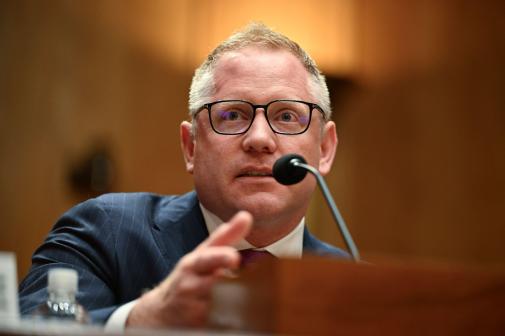One of two U.S.-Israel cybersecurity cooperation bills signed

President Obama has signed into law a bill aiming to strengthen collaboration on cybersecurity research and development efforts between the U.S. and Israel.
H.R. 5877, the U.S.-Israel Advanced Research Partnership Act of 2016 passed the House unanimously last month under suspension of the rules and passed the Senate without opposition during a flurry of last minute activity overnight Dec. 9-10. The president signed it Friday.
The bill was one of two introduced in July after Reps. John Ratcliffe, R-Texas and Jim Langevin, D-R.I., visited Israel on a congressional delegation focused on key cybersecurity issues facing both countries, such as protecting power grids from hackers.
“I’m glad I was able to work closely with Rep. Langevin to craft legislation to advance this important fight [to protect America from hackers] that is now the law of the land,” said Ratcliffe, who chairs the House Homeland Security Subcommittee on Cybersecurity, Infrastructure Protection and Security Technologies.
The law will “enhance cybersecurity for the United States and Israel, putting us on a shared path toward innovative solutions to the threats we face,” said Langevin, co-founder and co-chairman of the Congressional Cybersecurity Caucus. He added, “I look forward to continuing to work with Chairman Ratcliffe to strengthen our relationship with Israel, including by passage of the U.S.-Israel Cybersecurity Cooperation Enhancement Act next Congress.”
Langevin introduced that bill, numbered H.R. 5843, with Ratcliffe’s support, but it was not taken up in the Senate. Supporters hope to get it re-introduced, and passed, next year.
The U.S.-Israel Advanced Research Partnership Act will expand a successful binational research and development program at the Homeland Security Advanced Research Projects Agency to include cybersecurity technologies. This collaboration between DHS and the Israeli Ministry of Public Security helps new products through the “valley of death” from basic and early-phase applied research to successful commercialization.
The other bill, the U.S.-Israel Cybersecurity Cooperation Enhancement Act, would have created a cybersecurity grant program for joint research and development ventures between Israeli and American companies, universities and/or nonprofits. The Homeland Security secretary would determine research requirements with help from an advisory board made up of members from successful U.S.-Israeli partnerships, but they would address research and development priorities across the spectrum from basic to applied to commercialization.






